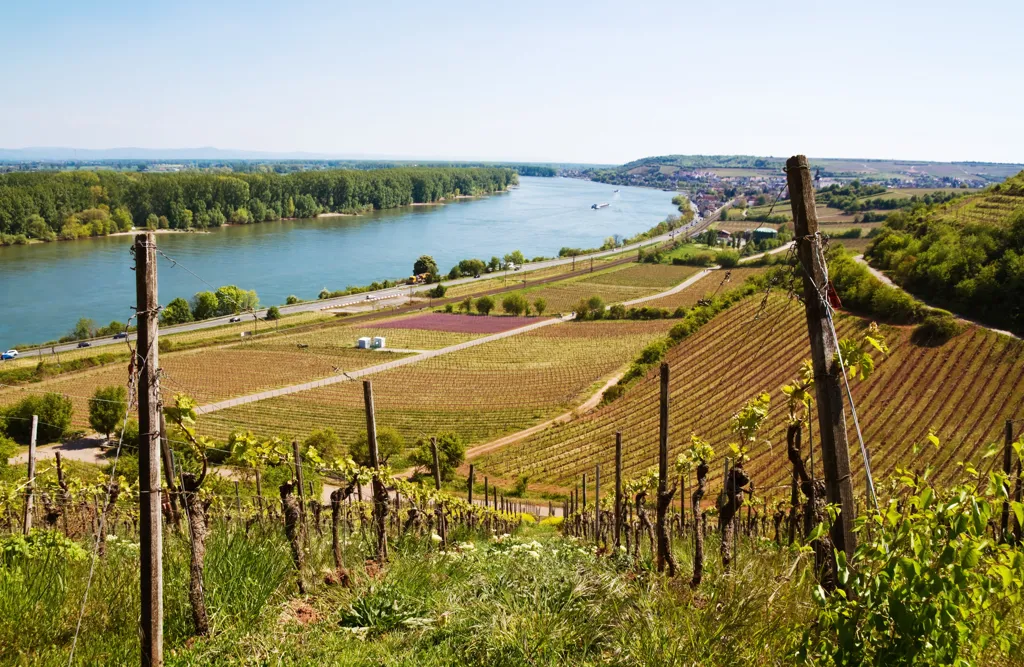
Rheinhessen
Rheinhessen is Germany's largest wine region, located in the Rhine River Valley in the western part of the country. It is known for its diverse range of wines, from dry whites to sweet dessert wines. The region has a long history of winemaking, dating back to the Roman Empire. Rheinhessen has been producing wine since the Roman Empire, when it was known as the province of Germania Superior. The region was an important center of winemaking during the Middle Ages, and it was here that the first German wine laws were established. In the 19th century, the region experienced a period of decline due to the phylloxera epidemic, but it was revived in the 20th century with the introduction of new grape varieties and modern winemaking techniques. Today, Rheinhessen is one of the most dynamic wine regions in the world, with many winemakers adopting innovative approach to winemaking.
Rheinhessen is known for its diverse range of wines, from dry whites to sweet dessert wines. The region is home to a wide variety of grape varieties, including Riesling, Silvaner, Müller-Thurgau, and Scheurebe. The most popular styles of wine produced in the region are dry whites, semi-dry whites, and sweet dessert wines.
Rheinhessen is home to some of Germany's most renowned winemakers, including Schlossgut Diel, Schloss Vollrads, and Weingut Kühling-Gillot. These producers are known for their high-quality wines, which have earned them numerous awards and accolades.
Rheinhessen is home to the world's oldest wine bottle, which was discovered in a Roman tomb in the region. The bottle, which dates back to the 4th century AD, is now on display at the Rheinhessen Museum in Mainz.



















